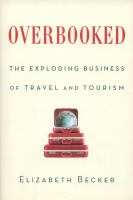Book Reviews: Beyond Consulting and Finance
At graduation, more than half of Fuqua students accept permanent positions in consulting or finance. But there are a host of other industries beyond those two, and the Ford Library’s collection features books about the best of them. Here are three new books about industries that students may not have considered.
 Blockbusters : hit-making, risk-taking, and the big business of entertainment by Anita Elberse
Blockbusters : hit-making, risk-taking, and the big business of entertainment by Anita Elberse
A Harvard Business School professor describes how the entertainment industry works, presenting evidence that blockbuster strategies produce the greatest returns and explaining why these strategies are so successful. Executives who place their bets on a handful of films, shows and concerts, invest heavily in their development, support them with promotional spending and distribute them widely, generate the most profits. Those who follow more risk-averse strategies fall behind. This book also analyzes the role of superstars and new digital technologies. Also available as an audiobook.
 Overbooked : the exploding business of travel and tourism by Elizabeth Becker
Overbooked : the exploding business of travel and tourism by Elizabeth Becker
The travel industry is one of the largest industries in the world and among the most environmentally destructive. Yet it also plays a role in widening the appreciation of different cultures and transferring wealth from rich to poor nations. Former New York Times correspondent Elizabeth Becker uses her own experiences traveling the world to discuss the impact of tourism on local citizens, including changes in culture, destruction of religious venues, skyrocketing cost of living, unsustainable coastal development and forced relocation of local people.
 Junkyard planet : travels in the billion-dollar trash trade by Adam Minter
Junkyard planet : travels in the billion-dollar trash trade by Adam Minter
Not likely to be an employment destination for Fuqua students, the worldwide recycling industry is interesting nonetheless. A professional journalist presents the hidden world of the globalized trade in trash and explains how the junk that homeowners recycle in their curbside bins is collected and shipped to distant locations like India or China, where it is reprocessed into other goods and resold profitably.
© Reviewer: Meg Trauner & Ford Library – Fuqua School of Business.
All rights reserved.